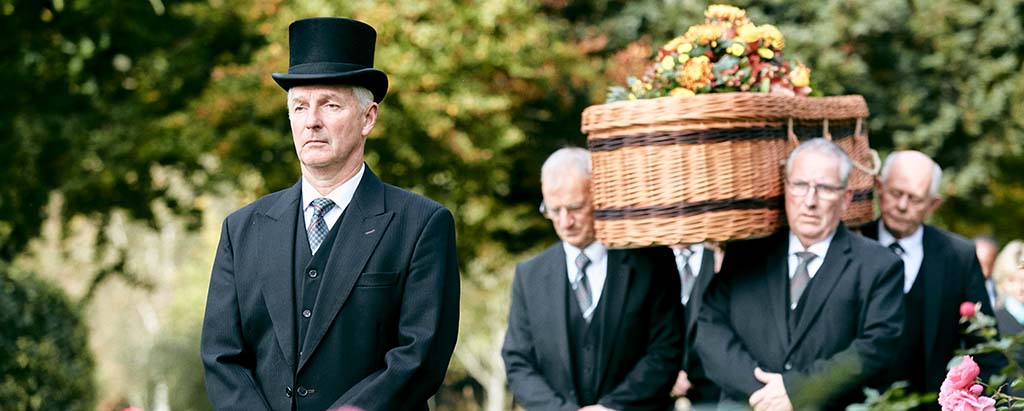Home / Help and Advice / Arranging a funeral / The Role of a Funeral Service Operative
The role of a funeral service operative
Planning a funeral can be overwhelming and stressful, but you don’t need to do it alone. Making the most of the support available through your funeral director, including the support of a funeral service operative, can make a difficult time a lot less daunting.

What is a funeral service operator and what do they do?
For many people, becoming a funeral service operative is their first route into the industry before they become fully fledged funeral directors. They could be considered the unsung heroes of the funeral industry, with a supporting role that is absolutely essential. From assisting with funeral arrangements and making sure everything goes smoothly on the day, a job well done by a funeral service operative will contribute to a smooth funeral. They’ll provide compassionate support to the bereaved family as well as assisting with tasks including driving, preparation, and administration. They will also have an in-depth knowledge of funeral customs across a variety of faiths and denominations.
What role will a funeral service operator play in arranging a funeral?
Much of the work undertaken by your funeral service operator will take place behind the scenes and before the funeral service. The work they do in the background is vitally important to the smooth running of the funeral service. From preparing the deceased to performing viewings in the chapel of rest, the role of the funeral service operator is hands on. Many of the tasks carried out go un-noticed but would be glaringly obvious should they go amiss. These include:
- Removing the deceased from the place of death and bringing them to the funeral home
- Ordering coffins, coffin accessories, gowns and more
- Preparing and fitting coffins, including engraving nameplates
- Receiving coffins and other deliveries
- Preparing the deceased for a burial or cremation, including placing them in coffins and preparing them for viewings
- Performing viewings in the chapel of rest
- Maintaining, washing, cleaning, polishing, and driving vehicles
- Receiving cremated remains and transfer into the appropriate casket or urn
- Liaising with the funeral directors to ensure records are kept up to date
- Assisting families with administration including purchasing of pre-payment plans
These are just some of the ways a funeral service operator will help to ensure your funeral service runs smoothly.


What role will they play on the day of the funeral?
The funeral service operative is an important member of the team and will help ensure everything goes smoothly on the day. Their role may include driving one of the hearses, helping to carry the coffin, and assisting funeral directors with their duties.
What can I expect from a funeral service operator?
They’ll be involved every step of the way, helping the family with administration, driving funeral cars on the day of the funeral. More widely, will also ensure all funeral vehicles are clean and presentable, and mortuary areas within the funeral homes are clean and tidy.
Find your local funeral director to start arranging a funeral for your loved one.
Step by step guide
There are several steps in the Funeral Planning process you will have to consider.
Types of funerals
There are a number of different types of funerals available. Which type of funeral service is right for your loved one?
What happens at a cremation service?
Cremations are fast becoming the norm in Britain with over 70% of families choosing this type of
funeral.
Further Reading: Cost of a funeral
Find out about funeral costs and what financial support could be available.